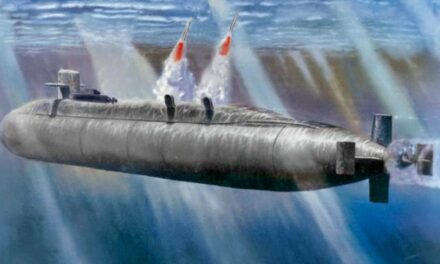We support our Publishers and Content Creators. You can view this story on their website by CLICKING HERE.
The United States is on the cusp of perhaps the most fundamental rethinking of its foreign policy since 1945. The inauguration of the second Trump administration has the potential to reset how future generations of American politicians, the military, business leaders, and the citizenry overall construe the country’s heritage and strategic priorities at home and abroad. And while there is a consensus in DC that China and the Indo-Pacific should be prioritized in US strategy going forward, for the first time in a century the fundamentals of the future of US relations with Europe are up for debate.
How did we get here? For too long Atlanticism has been taken for granted as the cornerstone of American foreign policy, and as in a marriage of many years, what seemed obvious for so long needs to be re-articulated afresh.
Historically America’s commitment to Europe has been about the fundamentals of geopolitics. The United States is a quintessentially naval power situated in a hemisphere separated from the Eurasian landmass by two oceans. Since the early twentieth century it has been a given that accessing secure maritime routes across the Atlantic – and in a national emergency, controlling them – is in the country’s irreducible national interest. The ability to do so has ensured the security of the American homeland and the Western hemisphere, and equally importantly, the nation’s prosperity and economic growth.
And while the Pacific has grown in importance over the last three decades, Europe remains America’s gateway to Eurasia, the source of its bedrock alliances, and ultimately the cradle of its national and cultural heritage. Suffice it to say that during the last two global conflicts, the United States went to war to prevent one power from dominating Europe and Eurasia. After the Second World War it remained in Europe to ensure that the Soviet Union, its erstwhile World War II ally, did not achieve what German imperialism had sought to accomplish in the first half of the twentieth century.
As H.J. Mackinder once presciently observed, man initiates, but nature controls, and though countries rise and decline in their absolute and relative power, be it Germany in the past, or China today, geopolitics remains constant. The verity that the US cannot allow a hostile power to control the combined resources of Europe and Eurasia was true and remains true today.
Ensuring that Europe remains closely aligned with America while limiting Chinese influence on the continent is foundational to the overall global balance of power favoring the United States and democracies around the world, both in economic and military terms. Even more importantly, it is precisely because of the accelerating competition with China that the United States must ensure the European allies do not get pulled into China’s orbit.
This is not just about the large collective GDP of Europe, its manpower resources, and technology that currently buttress America and allow NATO to achieve both US and European objectives at an acceptable cost.
It matters most that in geostrategic terms, Europe is America’s strategic entry point that allows the United States to project power to several key theaters. Without its alliance with Europe, the United States would return to the peripheral hemispheric position it occupied in the early years of its history, as it moved from subsistence farming to an industrial economy while it expanded across the American continent.
To paraphrase and extend the famous dictum attributed to General Ismay, Winston Churchill’s chief of staff during World War Two when commenting on the role Great Britain played in that war, today continental Europe is America’s unsinkable carrier, only on a much grander scale.
The United States has invested both resources and reputation at an unprecedented scale in Europe, in the process building a wall of deterrence that kept the Soviet Union at bay for half a century after the Second World War until the communist empire finally imploded. It was the investment of American money, American manpower, and most of all American commitment communicated in no uncertain terms that kept the Soviet Union in check.
To forfeit this investment today would undermine not only NATO and with it the United States’ position in Europe, but our standing in every theater across the globe, for a country that is unwilling to protect its critical investments cannot be expected to lay it on the line in secondary and tertiary regions.
Simply put, if America loses credibility in Europe, it will use credibility in the Pacific, the Middle East, and elsewhere.
So, it’s time to conceptualize again and, most importantly, communicate to the electorate why today Europe matters to the United States’ security to the degree that it has for over a century now, and – while it may sound counterintuitive to some as China continues to expand its military at speed and scale – that it should be prioritized going forward.
True, NATO allies urgently need to rearm; however, Europe vs. Asia is not an either/or proposition when it comes to America’s vital strategic interests; rather, it is a both/and problem set.
The resources Europe brings to its alliance with the United States, both economic and military, are a force multiplier. Our aggregated power with Europe not only frees US assets for the Indo-Pacific, but also contributes to regional stability in key theaters, and in turn taxes China’s resources needed to project political and economic influence. Remaining anchored in Europe will not hinder but in fact facilitate the United States ability to deter and if need be, defeat China. To say Europe is central to American security is to recognize the reality of the world today.
M1 Abrams Tank firing. Image Credit: Creative Commons.
America must remain in Europe not out of habit, but because of a clear geostrategic and national security interest. Simply put, America can only deal with challenges emerging in Asia, the Middle East, and elsewhere – and do so at an acceptable cost – if Europe is secure.
About the Author: Dr. Andrew A. Michta
Andrew A. Michta is a Senior Fellow at the Scowcroft Center for Strategy and Security at the Atlantic Council of the United States. Views expressed here are his own. He authors a weekly column for 19FortyFive.

 Conservative
Conservative  Search
Search Trending
Trending Current News
Current News 





